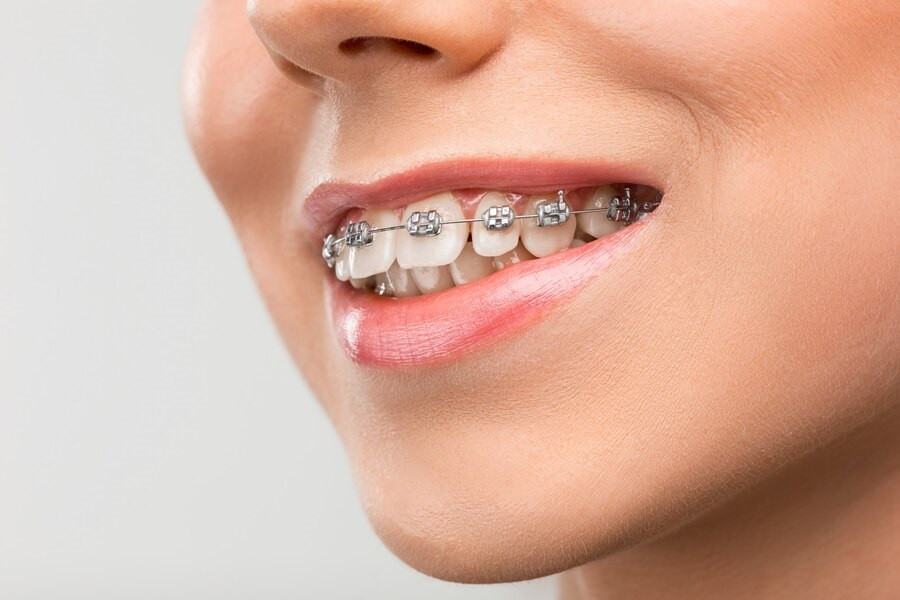Kalsium merupakan salah satu mineral penting yang diperlukan untuk tubuh, termasuk tulang dan gigi. Kekurangan kalsium dapat menyebabkan gigi mudah keropos dan rapuh. Apa saja dampak kekurangan kalsium pada gigi? Simak ulasannya berikut ini.
Dampak Kekurangan Kalsium pada Gigi
Kalsium adalah mineral yang mendukung berbagai fungsi dalam tubuh, di antaranya mendukung kinerja otot, menjaga kesehatan jantung, dan memelihara kesehatan tulang dan gigi. Tidak mendapatkan asupan kalsium yang cukup bisa menyebabkan Anda mengalami kekurangan kalsium yang juga berdampak pada tulang dan gigi.
Kekurangan kalsium, fosfor, dan vitamin D dapat menyebabkan penurunan kepadatan tulang dan gigi sehingga meningkatkan risiko tulang mengalami osteoporosis, serta gigi mudah tanggal dan berlubang.
Baca Juga: Komplikasi yang Terjadi Bila Gigi Berlubang Dibiarkan Tanpa Perawatan
Gejala Kekurangan Kalsium pada Gigi
Hampir sekitar 99% kalsium dalam tubuh disimpan pada tulang dan gigi. Ketika tubuh kekurangan kalsium, hal ini dapat menyebabkan tulang dan gigi mudah rapuh bahkan kehilangan gigi.
Gejala kekurangan kalsium pada gigi mungkin tidak terlihat di tahap awal karena ketika kadar kalsium dalam darah berkurang, tubuh akan mengambil kalsium dari tulang dan mengedarkannya ke seluruh tubuh. Seiring berjalannya waktu, hal ini menyebabkan tulang dan gigi melemah.
Beberapa gejala kekurangan kalsium yang dapat muncul antara lain:
- Gigi murah rapuh dan tanggal
- Osteopenia, massa tulang rendah yang dapat memicu osteoporosis
- Perubahan kuku
- Badan mudah lelah
- Detak jantung tidak normal
- Nafsu makan berkurang
- Otot mudah kram
- Kebas dan kesemutan di ujung jari
- Kejang
Baca Juga: Kapan Perlu Minum Suplemen Kalsium
Penyebab Kekurangan Kalsium
Penyebab kekurangan kalsium dapat bermacam-macam di antaranya:
- Gagal ginjal
- Operasi pengangkatan lambung atau yang mengubah saluran pencernaan
- Penggunaan obat diuretik jangka panjang dan meningkatkan ekskresi cairan
- Kurangnya asupan kalsium dari makanan
Pencegahan dan Penanganan Kekurangan Kalsium
Tubuh tidak dapat menghasilkan kalsium sendiri sehingga kebutuhan kalsium perlu didapat dari makanan atau minuman yang dikonsumsi sehari-hari. Penanganan kekurangan kalsium utamanya dilakukan dengan mengonsumsi suplemen kalsium.
Namun, konsumsi suplemen kalsium dalam jangka panjang dapat memiliki efek samping bagi kesehatan pencernaan, jantung, dan ginjal. Untuk itu, sebelum mengonsumsi suplemen kalsium sebaiknya konsultasikan terlebih dahulu ke dokter.
Penanganan kekurangan kalsium yang aman dalam jangka panjang adalah perubahan gaya hidup sehat meliputi:
- Menjaga kesehatan gigi dan gusi secara berkala dengan menyikat gigi, membersihkan sela gigi, dan rutin memeriksakan kesehatan gigi ke dokter gigi
- Berhenti merokok dan minum alkohol
- Minum suplemen vitamin D
- Menjaga berat badan ideal
- Rutin olahraga secara teratur
- Berhati-hati agar tidak terjatuh
- Mengonsumsi makanan yang kaya akan kalsium seperti:
- Produk olahan susu, termasuk susu, keju, dan yoghurt
- Susu kedelai
- Tahu
- Sayuran berdaun hijau tua
- Almon
- Kacang-kacangan
- Minuman kemasan yang diperkaya dengan kalsium
- Ikan kalengan
Untuk menjaga kesehatan gigi, para ahli merekomendasikan seseorang mengonsumsi kalsium, vitamin C, dan fosfor. Vitamin C membantu meningkatkan kesehatan gusi, sementara fosfor penting untuk gigi yang kuat. Anda bisa memenuhi kebutuhan fosfor melalui konsumsi kacang-kacangan, telur, dan daging.
Kekurangan kalsium di tahap awal sering kali tidak menunjukkan gejala. Namun jika Anda mengalami gejala kekurangan kalsium seperti gigi tiba-tiba mudah tanggal atau kram otot, maka sebaiknya periksakan ke dokter agar segera mendapat penanganan sesuai. Anda juga dapat memanfaatkan fitur konsultasi pada aplikasi Ai Care yang bisa diunduh melalui App Store atau Play Store.
Mau tahu tips dan trik kesehatan, pertolongan pertama, dan home remedies lainnya? Cek di sini, ya!
- dr Nadia Opmalina
Fletcher, J. (2023). What to know about calcium deficiency and teeth. Available from: https://www.medicalnewstoday.com/articles/calcium-deficiency-teeth
Panoff, L. (2021). Can Calcium Deficiency Affect Your Teeth?. Available from: https://www.healthline.com/nutrition/calcium-deficiency-teeth
Ajmera, R. (2023). Top 15 Calcium-Rich Foods (Many Are Nondairy). Available from: https://www.healthline.com/nutrition/15-calcium-rich-foods












